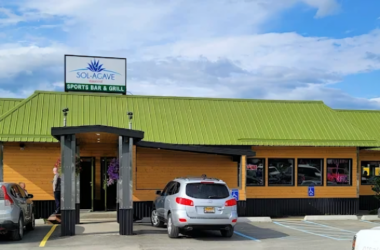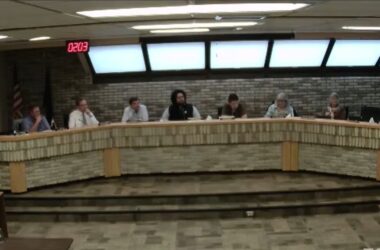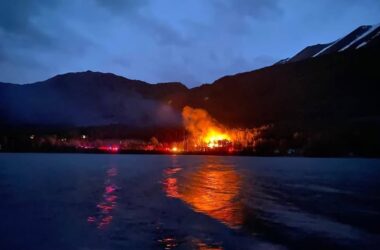On Friday, March 11, 2022, the Bureau of Land Management suspended its 50-year right-of-way with the Alaska Industrial Development and Export Authority (AIDEA) for its 132,000-foot-long portion of federal land for the future construction of the Ambler Mining District Industrial Access Road. The proposed route for the controlled industrial access road crosses lands belonging to multiple federal agencies, the State of Alaska, and multiple private Alaska Native landowners.
The right-of-way was granted in 2021 in accordance with the Joint Record of Decision issued by the Department of the Interior and the U.S. Army Corps of Engineers following a lengthy seven-year review process initiated under the Obama Administration. In the suspension notice, the Interior department determined the BLM didn’t appropriately evaluate the effects on subsistence uses and didn’t adequately consult with Tribes prior to executing the project’s programmatic agreement.
AIDEA says that the notice, however, doesn’t identify any specific deficiencies or corrective action plan. In addition, it also fails to acknowledge the comprehensive engagement and consultation with key stakeholders throughout the process. They state that the BLM engaged in extensive outreach nearly quadrupling the required scoping period to allow additional time for public input.
AIDEA CEO Alan Weitzner said:
“Suspending our right-of-way is a major setback for Alaska and the nation in accessing domestic and reliable supplies of the critical and strategic minerals so essential to our nation’s transition to clean and advanced technologies. The more our federal government prevents access to these minerals in Alaska, the more we remain reliant on supply chains from sanctioned nations.”
The Ambler Mining District is a large prospective copper-zinc mineral belt with extensive deposits of critical minerals and other elements deemed essential for military effectiveness, renewable energy technology, and tech-focus economy. It’s estimated that the district would create nearly 4,000 jobs and over $300 million in annual wages once the mines are operational adding new revenues for state and local governments, but those are put under threat when the permitting project experiences roadblocks from the federal government, according to AIDEA.
Governor Dunleavy issued a statement saying:
“In February, the Department of Interior reopened an environmental impact statement for the Ambler Access Project that had undergone seven years of robust federal review and made a request to suspend the Ambler Road right-of-way. Today, the Biden Administration suspended that right-of-way, saying subsistence and consultation with Alaska Natives wasn’t considered enough, despite 18 hearings in rural communities and 29,000 written comments received overall, and 50 pages of mitigation measures focused on preventing disruption to subsistence and protection of cultural resources.
This suspension is another hasty move on the part of the Biden Administration. They sprint toward green energy, while shackling traditional oil and gas development on the way, and don’t consider the need to secure mineral supply chains for all those electric car batteries they want by 2030 and the half a million charging stations. It makes no sense. The Biden Administration blocks the development of a road to a mining district with the cobalt for the lithium batteries and the copper for the wires for charging stations. By suspending the right-of-way for the Ambler Road project, the Biden Administration ignores the gallium and germanium there that will be needed for the solar panels, smartphones, and computer chips of tomorrow.
Mr. President will you brush this off as you did your curtailment on domestic oil production as you turn to Iran and Venezuela for more oil? Shall we continue to import cobalt from Congo for all your green energy plans? President Biden you would think that you would want to improve access to American sources of copper and other strategic minerals to increase renewables, not stop it.
Once again, your energy policies don’t make sense.”
Click here for more information.






